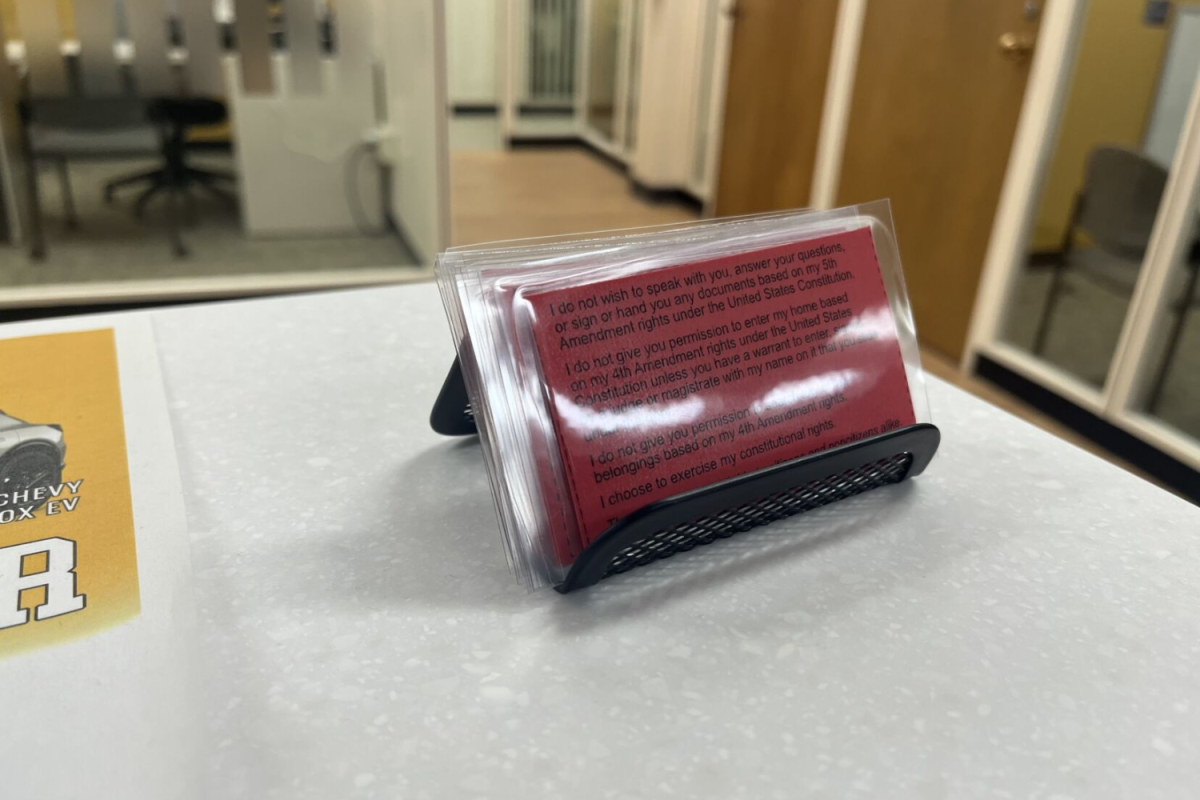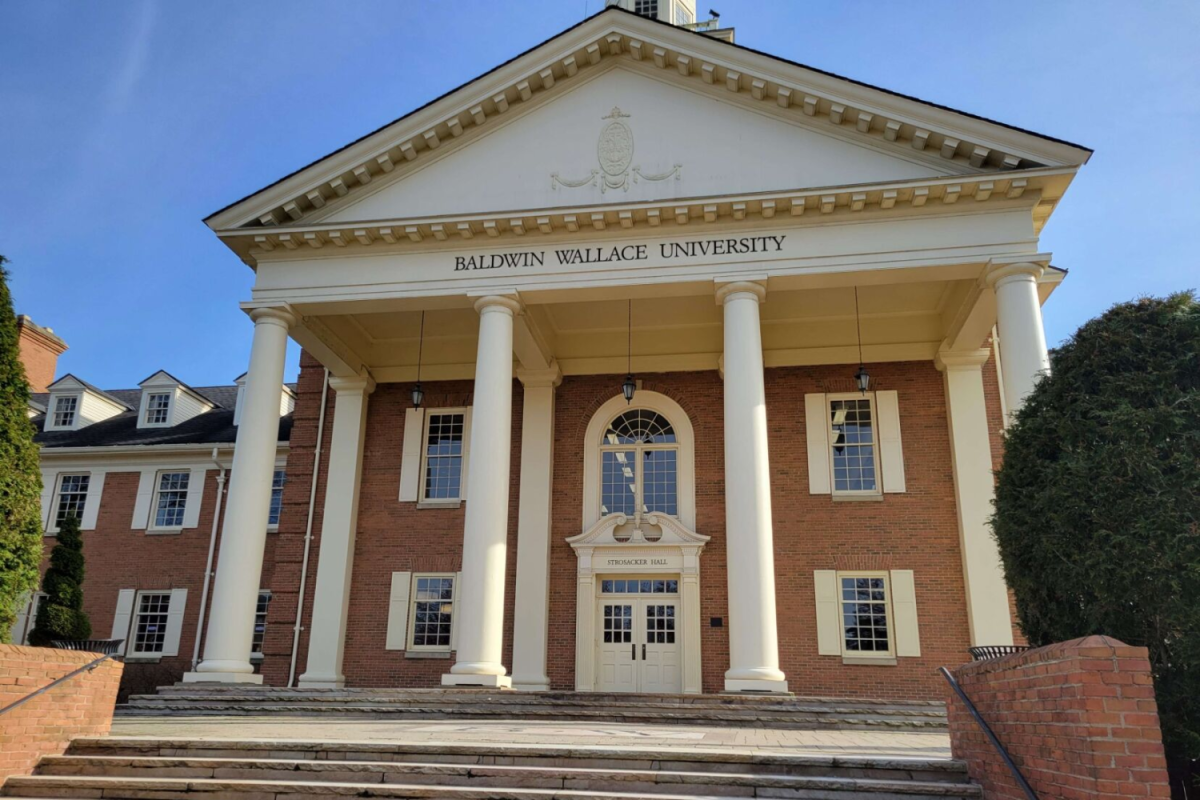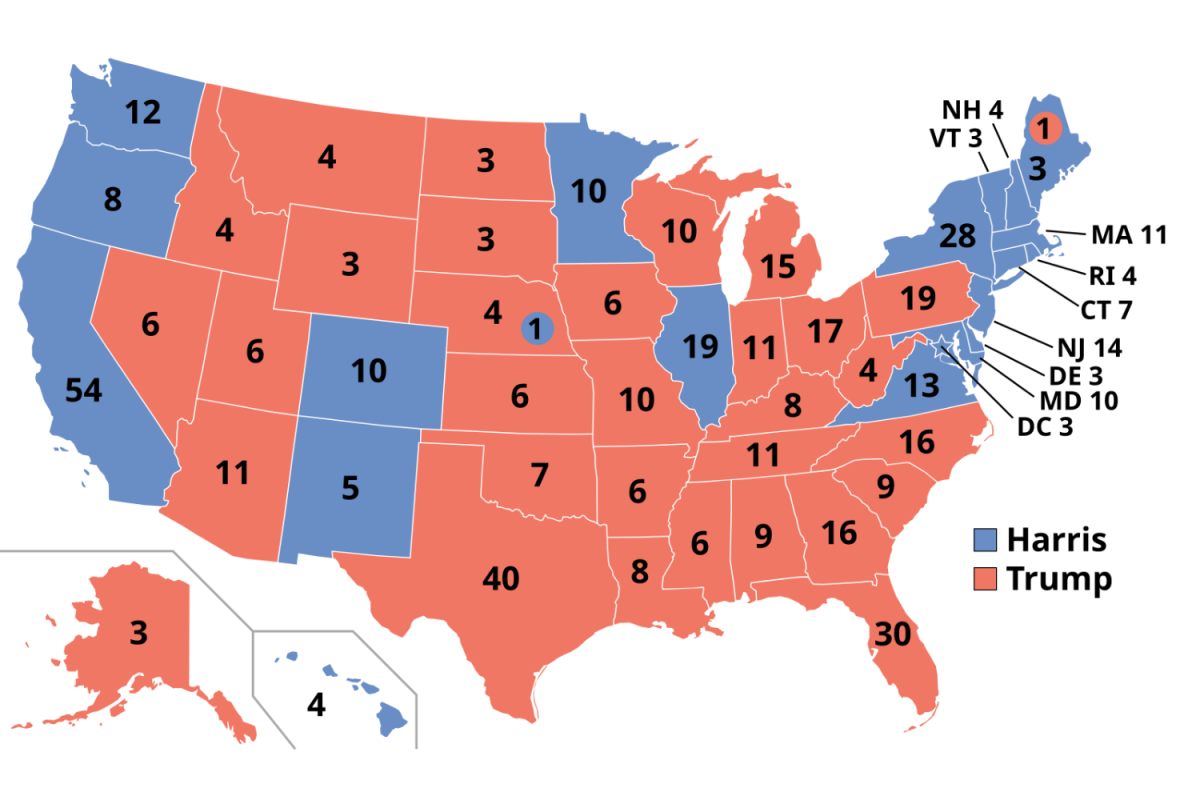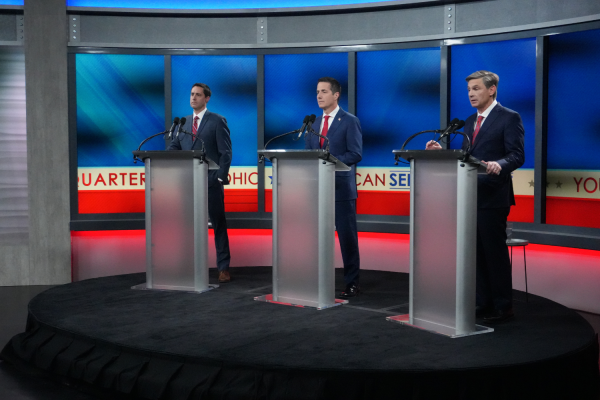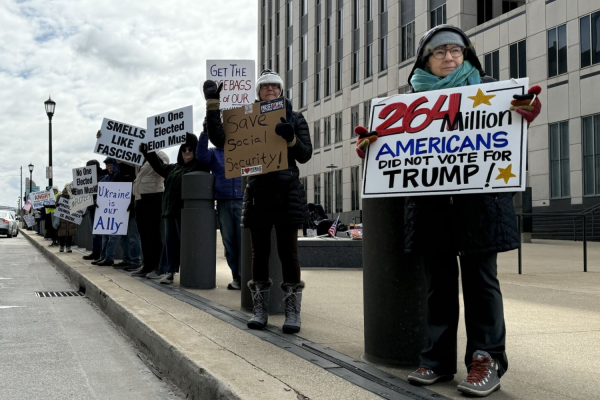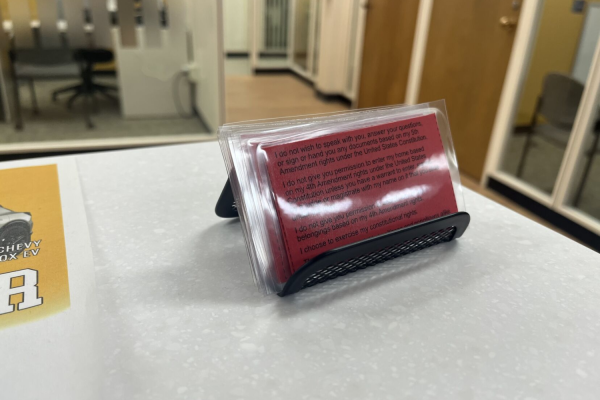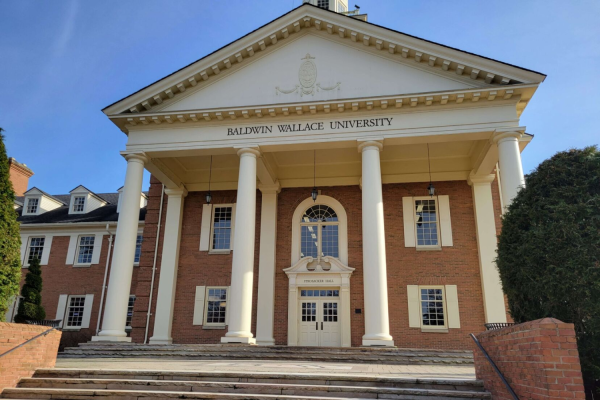‘Dark money’ groups aided Ohio lawmakers in defining natural gas as ‘green,’ watchdog group reveals
“I would say natural gas is not a source of clean energy because it emits CO2 equivalent emissions,” said David Krueger, a professor and co-director of Baldwin Wallace’s sustainability program.
With the help of so-called “dark money” groups, the Ohio legislature designed House Bill 507, a bill signed into law by Governor Mike DeWine on Jan. 6, which removes barriers for oil and gas drilling in state parks and defines natural gas as “green energy.”
The Environmental Protection Agency does not define natural gas as green energy but instead labels it under “conventional power,” including other fossil fuels. David Krueger, a professor and sustainability program co-director, said natural gas is not clean energy but is better than other energy sources.
“I would say natural gas is not a source of clean energy because it emits carbon dioxide equivalent emissions,” Krueger said. “It’s less bad than coal. That’s given, and it’s less bad than petroleum, so clearly, natural gas is going to be part of the energy mix.”
DeWine’s spokesman, Dan Tierney, told Cleveland.com that the language defining natural gas as green energy was a “symbolic” gesture, and that the designation does not have binding effects on regulations or funding.
“Given the language was symbolic or opinion language, the Governor made the decision that this provision was not worth vetoing the entire bill over,” Tierney said.
Tom Sutton, a political science professor, said that while the state defining natural gas as “green energy” does not currently have any impact, it could down the road.
“If any legislation from the federal government comes out that requires adherence to regulations of what is considered green energy, the state of Ohio could say this is green energy,” Sutton said.
The Energy and Policy Institute, a group that advocates for renewable energy while exposing information about utility and fossil fuel interests, obtained public documents showing how “dark money” groups aided the effort to redefine what it means for energy to be considered “green.” Dark money refers to funds raised to influence politics and legislation by nonprofit organizations that are not required to disclose the source of their donations.
The dark money groups, The American Legislative Exchange Council and the Energy Empowerment alliance, an organization connected to the oil and gas industries, provided talking points and modeled legislation to lawmakers.
Sutton said A.L.E.C. has a long history of developing conservative legislation, including some states’ “stand your ground” laws, which remove the requirement of retreating before utilizing force in self-defense. Sutton lamented that Democrats do not employ similar strategies.
“My beef is not as much with them as with the Democrats who don’t seem to have an equivalent body doing the same,” Sutton said. “If the other side develops a new weapon, figure out how to do it yourself.”
Sutton said special interests have always had a place within the Ohio legislature, dating back to before the Gilded Age.
“When we talk about trust-busting from the Gilded Age, a lot of that had to do with state-level lobbying by the same industry: energy,” Sutton said.
A spokesperson for the Ohio Senate’s majority caucus, John Fortney, told Cleveland.com that green energy takes away from the United States’ ability for energy independence.
“For the radical left, green energy is simply code for the color of money, and how it can use climate change scare tactics to fundraise millions of dollars while vilifying this country’s ability to be energy independent,” Fortney told Cleveland.com.
H.B. 507 is sometimes referred to as “the chicken bill” since the House initially passed it as a bill that affected the number of chickens that could be sold in lots. After the bill reached the senate, the natural gas provisions were tacked on. Bride Rose Sweeney, the State Representative representing Berea who voted no on the final version of H.B. 507, told The Exponent in a previous interview how the senate adds provisions to bills.
“The senate attaches it, and basically at that point, it technically does not have to have three hearings in the house,” Sweeney said. “It’s a loophole that is used, unfortunately, a lot to get things done and to really subvert a public process because we represent just as many people as the Ohio Senate.”
While dark money was helping to shape H.B. 507, Larry Householder, the former Ohio House speaker, and lobbyist Matt Borges, had a trial court date set for Jan. 23 over a $60 million bribery scheme allegedly funded by FirstEnergy.
Householder and Borges are currently being accused of working with the dark money organization Generation Now, which allegedly funneled funds from FirstEnergy to help Householder pass H.B. 6, legislation that involved a $1 billion bailout for two nuclear plants.
Kelly Coble, a philosophy professor who often teaches environmental ethics, said H.B. 507 is a similar story of dark money’s influence on Ohio’s policies.
“While we have no reason to believe any of this is actually illegal, it is also sad that this is happening when Larry Householder’s trial begins, and the travesty of H.B. 6 is thus on our minds.”
The Exponent is looking for financial contributions to support our staff and our newsroom in producing high-quality, well-reported and accurate journalism. Thank you for taking the time to consider supporting our student journalists.




